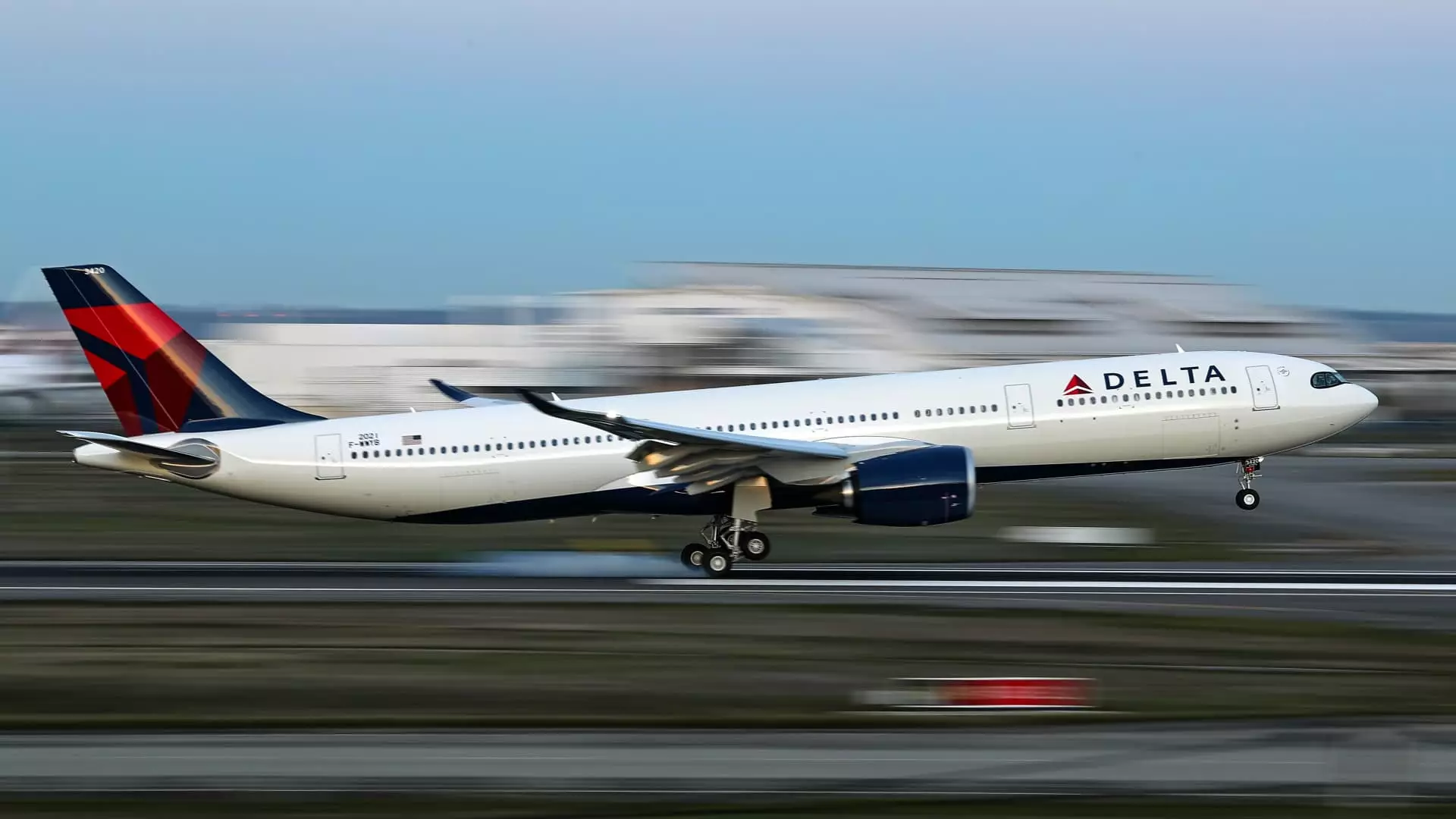In an era where airline competition is increasingly fierce and consumer expectations evolve rapidly, Delta Air Lines’ cautious approach to its premium cabins reveals a fundamental misconception about modern travelers. While some industry voices celebrate the idea of segmentation and innovative pricing strategies, the reality is that such maneuvers could undermine the airline’s long-standing reputation for quality and customer loyalty. Delta’s hesitation to quickly revamp or diversify its high-end offerings suggests a reluctance rooted in outdated notions of luxury, potentially hampering its ability to stay competitive in a market where experience and value are king.
The airline’s strategy seems introspective and reactionary, rather than proactive. Instead of leading with innovation, Delta appears to be testing waters—uncertain about whether to push for cheaper premium fares or to augment existing amenities with more modern, customer-centric features. This conservative stance reveals a deeper issue: a lack of confidence in the financial viability of a truly disruptive approach to premium travel. Instead of reimagining luxury and convenience, Delta seems content with incremental upgrades, risking obsolescence as competitors craft more appealing, flexible, and affordable premium experiences.
The False Promise of Segmentation Without Substance
While segmentation is desirable, the current implementation signals a superficial attempt to cater to diverse customer needs without a clear strategy to redefine premium travel. Segmenting high-end cabins into smaller niches could easily backfire if it results in watered-down service or unequal quality. For an airline that boasts of robust profits from premium cabins and a growing loyalty program, this approach may illustrate complacency rather than innovation. It risks alienating core customers—business travelers and affluent passengers—who expect consistency, exclusivity, and genuine luxury.
Moreover, by focusing on modest upgrades rather than groundbreaking service innovations or value propositions, Delta might be missing a broader opportunity. In a market where travelers are increasingly savvy and demanding, offering a “bigger seat with add-ons” or sacrificing full-service perks may not suffice. The risk is that such strategies commodify premium cabins and dilute the perception of exclusivity that once distinguished carriers like Delta. The airline’s initiative to test new ideas signifies reflection, but not enough boldness to truly redefine what premium travel should be in the 21st century.
The Industry’s Shift Toward Less Opulence, More Practicality
International airlines are already modifying their approach to luxury, favoring larger, more functional cabins over the traditional, opulent first class. U.S. airlines, including Delta, find themselves at a crossroads, where the historic markers of premium travel—lie-flat seats, luxury suites, lounge access—are increasingly viewed as cost centers rather than value drivers. Yet, instead of embracing the necessity to evolve, Delta seems caught in a nostalgic trap, believing incremental upgrades suffice.
Delta’s willingness to continue investing in “state-of-the-art” configurations may be well-intentioned, but it misses the broader trend: premium customers, especially corporate travelers, now seek flexibility, personalization, and seamless experiences above mere luxury amenities. The airline’s focus on maintaining the status quo, rather than pioneering new service models, could become a competitive liability. In an environment where customer experience is as much about convenience as it is about amenities, Delta’s cautious, uncertain approach might erode its appeal among the kind of travelers that keep the airline profitable.
The Economic Reality and the Future of Premium Travel
Delta’s insistence that premium cabins will “continue to upgrade” reflects a myopic view rooted in traditional notions of luxury. But in reality, the premium segment is shrinking in profitability and desirability as travelers grow more pragmatic. Airlines like United and American are exploring creative solutions—bigger suites, private dining, customizable experiences—that could swiftly overshadow Delta’s conservative upgrades.
Furthermore, Delta’s focus on survey-driven innovations, absent a bold vision aligned with current market realities, suggests a strategic paralysis. To thrive, premium cabin offerings must transcend the basics and craft an experience that justifies the premium price—through exclusivity, personalization, and cutting-edge comfort, not just incremental technological upgrades. Without daring to challenge the status quo, Delta risks becoming a second-tier player in a landscape increasingly driven by innovation and customer-centricity.
In the end, standing still and maintaining legacy standards in an industry driven by rapid change is a surefire recipe for stagnation. Delta’s reluctance to fully embrace this truth could jeopardize its leadership position, making it a has-been rather than a trailblazer. The airline must decide—adapt boldly or fade quietly into the background of a transformed premium travel market.

